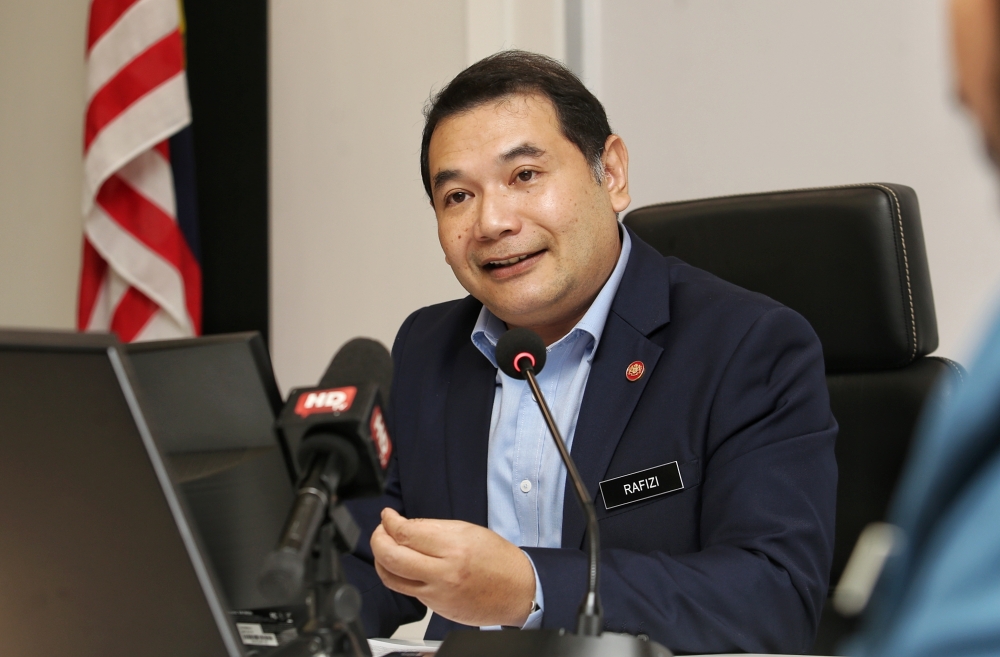KUALA LUMPUR, Aug 30 — The Court of Appeal today ruled that Public Bank Berhad (PBB) was liable for leaking information of bank account confidentiality to a third party that led to the 2012 National Feedlot Corporation Sdn Bhd (NFCorp) scandal exposé.
A three-member panel ruled that the appeal on liability brought by NFCorp and three others against PBB was valid as the lower court judge had erred in exonerating the bank from any culpability or responsibility for the wrongful disclosure.
The three-member panel comprised Court of Appeal judges Datuk Azizah Nawawi, Datuk P. Ravinthran and Datuk S. Nantha Balan.
In their ruling, the panel also ordered PBB to pay RM500,000 to the named plaintiffs as cost.
"The High Court’s order on liability is set aside.
"The High Court’s decision to dismiss the claim for substantial damages, aggravated damages and exemplary damages is affirmed.
"We are of the view that based on the facts and circumstances of the case here, the plaintiffs are entitled to costs of the proceedings in the High Court and in the Court of Appeal," their judgment read.
The appellate court also awarded a sum of RM10,000 as nominal damages with interest thereon at five per cent per annum from May 22, 2012 until the date of full payment.

What the court said
The appellate court said there was serious mis-appreciation of evidence pertaining to the confidential banking information which were wrongfully disclosed to PKR deputy president Rafizi Ramli by a former clerical staff of the bank that were subsequently made public in a press conference in May 2012.
Rafizi eventually released the confidential information together with a write-up captioned as - “Bukti Bagaimana Dana Awam Untuk Projek Fidlot Digunakan Sebagai 'Jaminan' Pinjaman Peribadi Untuk Membeli 8 Unit Hartanah Mewah Di KL Eco City, Bangsar”.
In dismissing the plaintiffs' claim then, the panel said the lower court judge had ignored vital evidence in its exoneration of the bank from any culpability or responsibility for the wrongful disclosure.
It added that testimonies of the bank's key witnesses - Veronica Foo (Head of Investigation Audit) - showed a clear inconsistency in their evidence presented during a Domestic Inquiry held by the bank and during trial hearing.
"Clearly Foo’s testimony during the trial was fundamentally at variance from what she said before the Domestic inquiry Panel.
"But the judge did not consider this part of the evidence, which of itself was a serious mis-appreciation of vital evidence.
"This stemmed in part from the judge’s stance in rejecting the Domestic Inquiry notes as being irrelevant," it said.
The panel pointed out that at no time did the bank take the position that the confidential information were not the bank's documents or that it did not pertain to the bank, or that there was no disclosure by an employee - Johari Mohamed - to third parties.
In fact, the bank found the former employee guilty of the charge of misconduct while implicitly accepting that it was Johari’s disclosure that enabled Rafizi to have access to the impugned documents.
"However, what happened at the trial was totally different.
"The bank’s witnesses took a different stance and refused to accept that Lampiran A-E came from the bank or that Johari made a wrongful disclosure of the bank’s customer’s details to third parties which eventually found their way into Rafizi’s hands," Nantha Balan said.
Expressing oddity, the appellate court then asked why would the bank take action against Johari if it claimed during trial the said leaked documents were not the same and take on a similar stance during its Domestic Inquiry back then.
Calling the bank's conflicting stance as a clear afterthought, the panel said for the bank to claim the impugned documents were not the bank’s was a convenient, self-serving position to take so as to exculpate the bank from liability for the most egregious and outrageous public disclosure of the plaintiffs’ banking information.
The appellate court said ultimately it was Johari's conduct that facilitated the disclosure of the impugned documents to Rafizi.
"Looking at all the circumstances, it would take very little to tilt the probabilities in favour of the conclusion that it was Johari who had handed over the impugned documents to third parties and these then eventually found their way into Rafizi’s hands," the judgment read.
In affirming the High Court's decision, the panel also said it was not persuaded that the lower court judge was erroneous, their reasoning flawed or the conclusions wrong in dismissing the plaintiff's claim for general damages, aggravated and exemplary damages.
What is their case
On July 29, 2019, the High Court dismissed the lawsuit brought by NFCorp, its executive chairperson Datuk Mohamad Salleh Ismail and three subsidiaries namely National Meat and Livestock Corporation Sdn Bhd, Agroscience Industries Sdn Bhd and Real Food Company Sdn Bhd against the bank.
They subsequently filed an appeal to the Court of Appeal.
On May 22, 2012, NFCorp, Mohamad Salleh and the three subsidiary companies filed the suit against PBB over breach of contract to protect their bank account confidentiality.
They claimed that their business reputation and credibility had suffered irreparable loss and damage as a result of the security breach of the Banking and Financial Institutions Act by the bank.



















